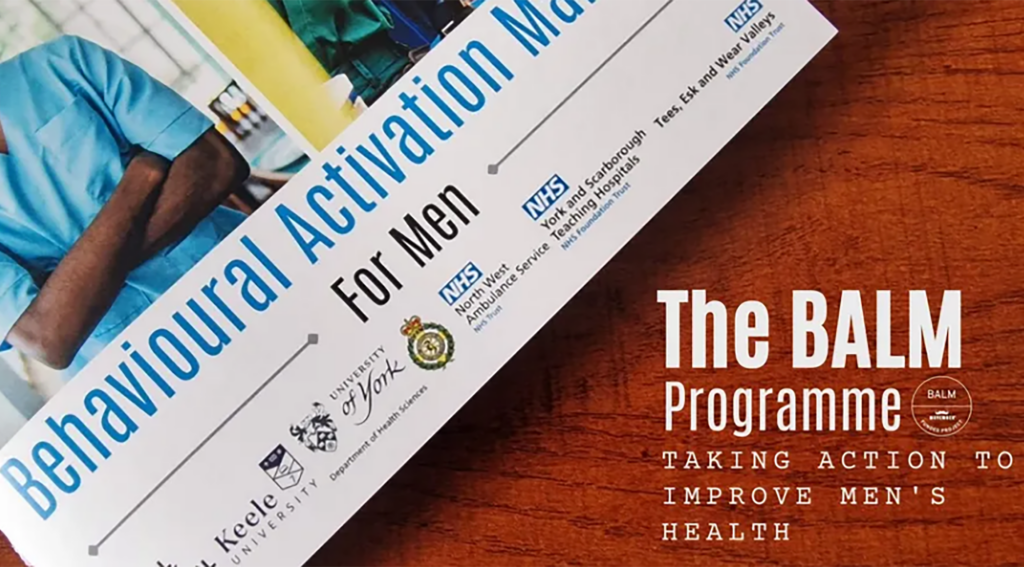Please complete the form below and one of our team will be in touch.
BALM: Stakeholder event and what’s next for the BALM programme
The BALM study – Behavioural Activation for Low mood and anxiety in Male frontline NHS workers.
Last year BALM composed a blog for PCMIS outlining the BALM study which was being conducted at the University of York. The Movember funded study ran for two years and recruited 45 men across the BALM partner trusts; Tees Esk and Wear Valleys NHS Foundation Trust, York and Scarborough Teaching Hospitals NHS Foundation Trust and North West Ambulance Service

Study background
There are currently unprecedented and sustained high levels of sickness absence in the NHS related to anxiety, stress, and depression, accounting for around a quarter (23%) of all sick days. Supporting healthcare staff to stay mentally well is key to wellbeing strategies in the NHS, but there is limited provision of effective psychological treatment or prevention for the workforce. Male NHS workers remain one of the most at-risk groups for poor mental health and suicide, but are often reluctant to acknowledge or seek help for mental health concerns. There is a profound need for evidence-based interventions that promote mental health and wellbeing in the male NHS workforce on a large scale. BALM is an early intervention to prevent the development of low mood and anxiety in male NHS frontline workers. BALM involves breaking the cycle of avoidance created by low mood or anxiety using telephone support from trained BALM coaches who guide participants through an easy to follow self-help booklet. This is an action-based intervention codesigned and tailored for men by men who work in the NHS.
The study concluded in April this year. Results show both a significant decrease in depression and anxiety in the study participants. Evaluations also showed the intervention was acceptable and appealing to both participants and BALM coaches. Men who took part reported that the emphasis on men made BALM attractive, and the self-help booklet encouraged them to do more and was easy to use. Most importantly, participants felt they were more reflective, open and valued their time more. They felt this personal impact had a positive effect on their family life, work life and career.

To celebrate a successful ending to the study, the BALM Stakeholder Event was held by the University of York at the historic King’s Manor this April. Attendees included BALM coaches and participants, VCSE ( Voluntary and Community Sector), Leeds United Football Club, members of the partner NHS research and development teams who had been heavily involved in recruiting for the study and representatives from Movember London. There was interest from local men’s groups as representatives attended from Menfulness, Andy’s Man Club, Mandem Meetup and Walking the Walk. Overall, there was a high level of attendance and the event was opened by Deputy Chair of the Health and Social Care Select Committee, Rachel Maskell MP, who has played a leading role in the committee’s inquiry into men’s health.
There was a clear and strong passion from attendees about promoting both the study and dialogue about men and boys’ mental health across the wider public. The event was not just informative but highly emotional as BALM coaches and participants spoke openly about their positive experiences of the intervention during a Q&A session. This was also the first time that BALM coaches and participants had met face to face.
One paramedic participant stated:
BALM had changed his life and he had confided in his BALM coach about things he had never told anyone.
Over the next year
BALM lead investigators Professor Paul Galdas and Professor Dean McMillan will be developing plans to implement and scale the intervention in the NHS, as well as exploring opportunities for providing BALM in other male-dominated workplaces, so watch this space…